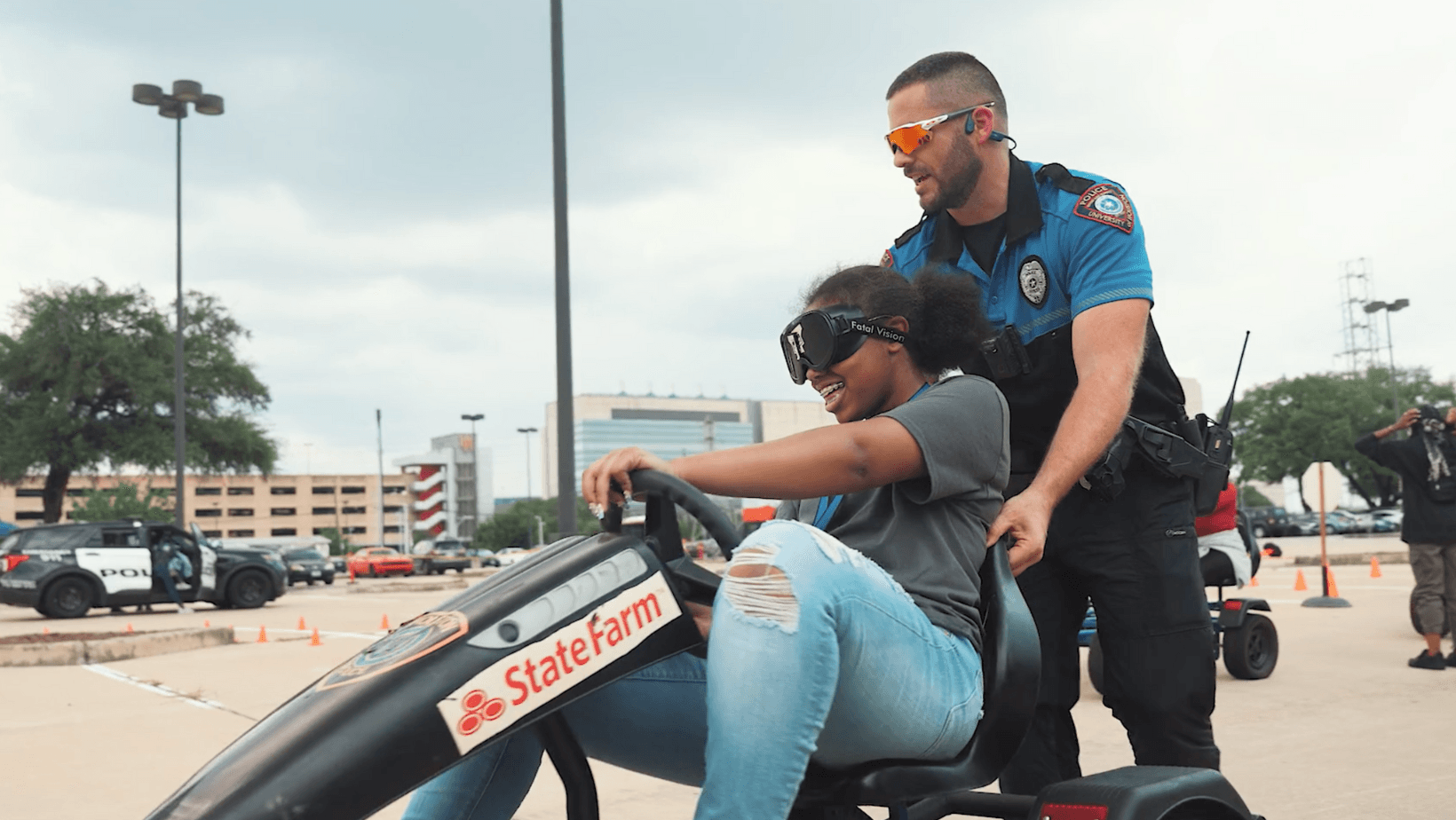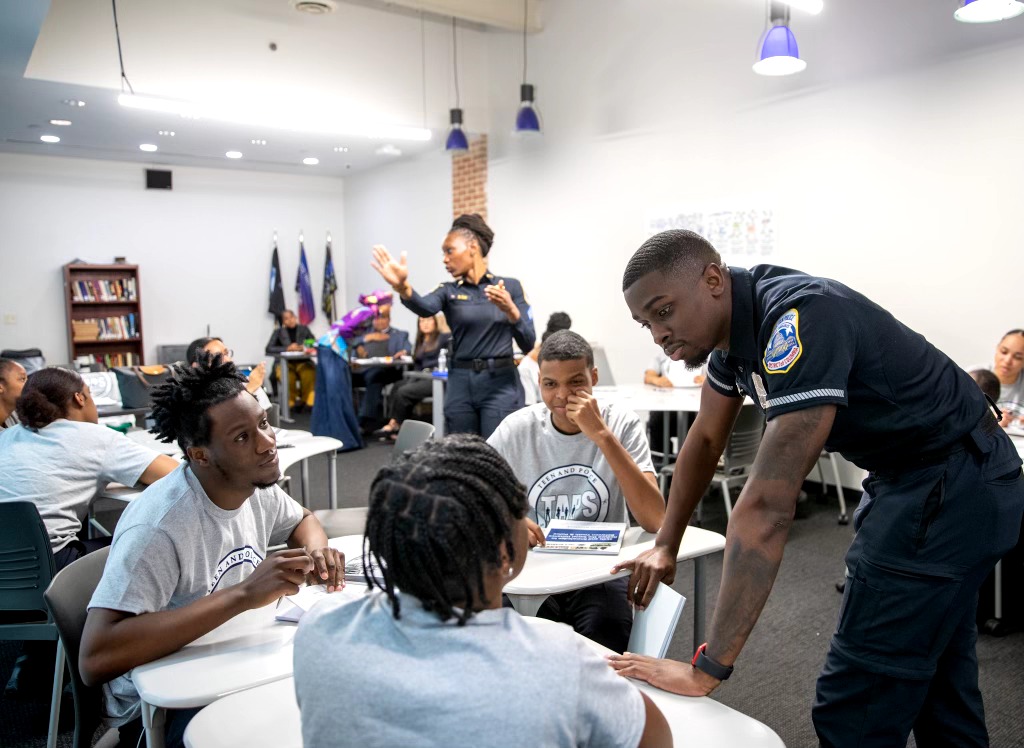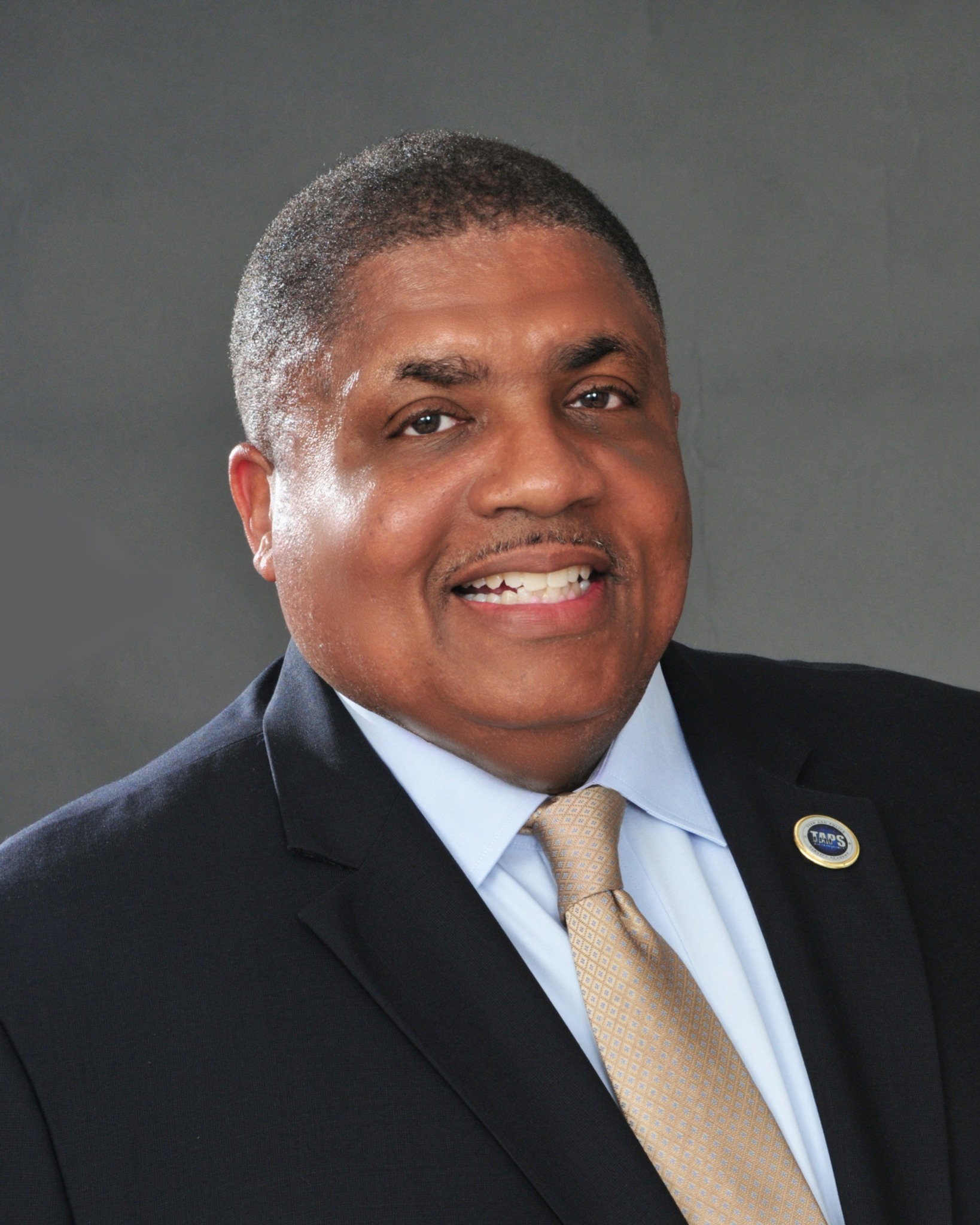We were lucky to catch up with Everette Penn recently and have shared our conversation below.
Everette , appreciate you joining us today. Folks often look at a successful business and imagine it was an overnight success, but from what we’ve seen this is often far from the truth. We’d love to hear your scaling up story – walk us through how you grew over time – what were some of the big things you had to do to grow and what was that scaling up journey like?
The Teen And Police Service (TAPS) Academy is a 501(c)(3) nonprofit organization that started from the Houston Police Department through a U.S. Department of Justice grant in 2011. We started off in a very good position with a $400,000 grant. Through thrifty spending and partnerships we stretched two years of funding into three years. In 2014 with demand high for our program to bring the most at-risk youth together with police in a mutually equal environment in which both learn from each other to answer questions, reduce their social distance and build community we had a pressing question in front of us: do we end TAPS Academy on the high that we had exceeded expectations of the initial funding and served hundreds of youth in the Houston area? or Do we continue on with no money, obtain our 501c(3) status and build a national organization? Of course, we choose the later. In part because we have seen the faces of the youth and their parents who have seen programs come and go in their neighborhoods and schools. Dr. Everette B. Penn the Executive Director of TAPS Academy clearly remembers a parent stating: “How long are you going to be with us, until the money runs out to pay you?” Determined not to be another in and out program in which residents feel used and simply subjects of interest so that researchers can get money, Penn decided to go forward, obtain 501c(3) status. The first year of TAPS Academy after the initial grant money was spent TAPS Academy had a budget of $9,100 but served about 500 youth through officer and staff volunteering as well as college students serving as interns.
Soon other locations, in other states and countries saw the research and outcomes of TAPS Academy. The program stretched to Columbus, Ohio: Ponce, Puerto Rico, and other locations as we started to gain contracts, grants and donations.
In 2024 TAPS Academy was in six states and served 8000 youth and has risen to be a $1,000,000 non-profit. In just 9 years we grew from no employees to over 40 throughout the United States. In 2025 we are expanding to several countries in the Caribbean. We refined our mission to follow 4 Key Performance Indicators of 1) reduce the social distance between youth and police; 2) teach crime prevention skills; 3) build community through service-learning: and 4) promote and enhance school safety all to advance our youth through College and Workforce skills so that they may obtain a living wage in the future.
Challenges still remain, as TAPS Academy heavily depends on U.S. Department of Justice grants. With recent changes from the current administration changes and adjustments are occurring to help TAPS Academy adapt to these new opportunities.

Everette , love having you share your insights with us. Before we ask you more questions, maybe you can take a moment to introduce yourself to our readers who might have missed our earlier conversations?
I am Dr. Everette B. Penn. I hold a Ph.D. in Criminology as I study why crime occurs and what we can do about it. My specific interest is youth and juvenile delinquency prevention. We know so much about why juvenile crime occurs. It basically breaks down to risk factors verses protective factors. Ideally, we would like to see every youth overflowing in protective factors such as supportive parents, non-exposure to gangs, poverty, drugs and other risky activities and behaviors. We know that is not the case. Thus mentorship, education, linking people to resources and opportunity provide protective factors to overcome these risk factors. Even with an over abundance of protect factors delinquency can still occur. Thus we must socially bond youth to a law abiding society so that when choices are in front of them they will choose to do the right thing. That is why TAPS Academy is so important. It ties youth and police together to learn from each other, decrease their implicit bias and see each as persons with value.
I enjoy what I do because on the same day I could be filming for a network television show, teaching a class on a college campus, teaching a TAPS Academy module and assisting a government official develop a policy related to a criminal justice issue. My wife often asks me the same question each day: What are you going to do interesting today? When she does I smile because I help youth, police, and communities better than what they were the day before. It is a good day!
How’d you meet your business partner?
The Teen And Police (TAPS) Academy came together through reputation in the business of juvenile justice. I was the Criminology Program Chair at the University of Houston- Clear Lake and one of the Assistant Chief’s of the Houston Police Department was a former student. The program’s reputation was known for producing police chiefs and other high level executives. I hired Assistant Chief Brian Lumpkin to be an Adjunct Professor because I wanted my students to gain the academic theory along with real-world practice for courses such as police, courts and corrections.
One early spring day in 2011 Chief Charles McClelland of the Houston Police Department told his Assistant Chiefs to apply for federal grants in order to restore youth programming into a department that had very few funds of its own to invest in such programming. Assistant Chief Brian Lumpkin a popular and community oriented police leader volunteered and learned he needed to team up with an academic. He immediately called me as asked me to join in to write the grant that we won that provided our initial funding. This started over 5 years of traveling internationally, giving lectures and trainings, writing articles and talking to policy makers as we combined our two world for the good of youth and policing. We lost Assistant Chief Brian Lumpkin to cancer several years ago but his praises still abound as he took on a challenge, meshed it with academia to create a new organization with Dr. Penn that has become one of the leading youth and police organizations internationally.

What do you think helped you build your reputation within your market?
TAPS Academy has built a reputation in the non-profit, youth and police, crime prevention community because research is our guiding principle. We pre-test, post-test, conduct After Action Reviews (AARs) and document all that we do. Perhaps it comes from my academic background as a Ph.D. . But it is important for those of us from the “school house” to know how to relate the subject in terms for all to appreciate and most importantly create pathways for dialogue, voice and mutual respect that move a field forward. So often academia in the field as believed to be “gotcha police” , looking for the flaws of the field and sit back as observing with a piercing eye to find the first and all problems. Reimagining the relationship between the university and the field causes academia to be teammates with those in the field brining new tools and methods to the questions and problems in order to find joint solutions through a cooperative environment.
This ethos of collaboration, mutual understanding and respect allows growth and positive results in the field.
Contact Info:
- Website: https://www.tapsacademy.org
- Instagram: all social media on webpage.
- Other: Please go to our webpage for all of our social media and contact information.
Image Credits
We will gladly provide pictures, if you decide to run the story and you inform us what will go best with the storyline.
Please see www.tapsacademy for the assortment of images from our national programming.
Our Communication Manager is Ms. Tiffiany Malone – [email protected].
A recent story about us appeared front page of the Houston Chronicle- https://eedition.houstonchronicle.com/infinity/article_popover_share.aspx?guid=185ab7b9-16a3-4b75-a2b4-704d7cfa3ccd&share=true


